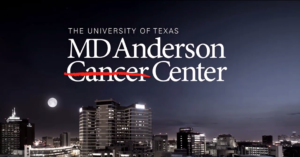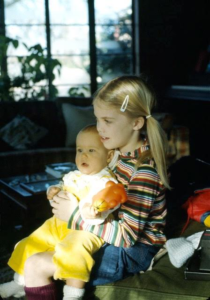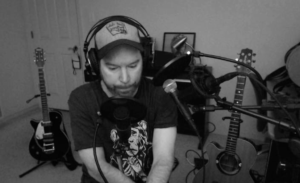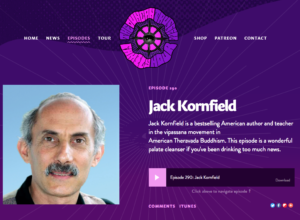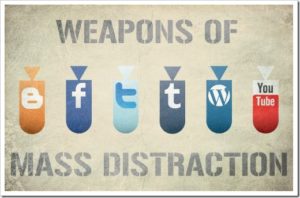Sometimes when I listen to the old recordings Alan Watts left behind, I imagine them as a present-day podcast, and I think, “This is better, more interesting, and more relevant than 99.9% of anything I’m listening to in 2021.” Here he reflects on the nature of truth, in 1959.
Waiting and seeing
I’ve been sick for twelve days now. It’s “just a cold,” except that ever since my leukemia diagnosis I can never really be sure whether a given ailment might be a symptom of disease progression. Because it seems like every conceivable everyday ailment also happens to be a symptom of chronic lymphocytic leukemia (CLL), from fatigue to joint pain to susceptibility to infections. It’s all part of the head-fuckery that one must take on board with this particular condition.
What’s at stake is whether or not I’ll be one of mythic “lucky ones” – which legend has it make up about 25% of CLL-ers – who never need treatment and live out their normal life spans. Of course, even these lucky bastards couldn’t have known they were in that exclusive club until their dying breath, because at any point during their lives things could have headed south without warning. We get blood work done every three months, and the results are never known in advance. A low level here or a high level there, and the doc might say, “It’s time to treat the cancer.” It’s only in retrospect one can say, “I was one of the lucky few!”
Another question I ask myself is, “If 25% of CLL patients never need treatment, and the median age at diagnosis is 70, does that mean that most of those supposed lucky ones are merely old farts who died of something else before the CLL had a chance to wreak havoc?” I’m 49, so what are the odds that I’ll dodge bullets for the next 50 years?
I see the doc in five days. It’s a wait and see thing, and it always will be. If the blood levels look good, then I’ll know these past two weeks were just a cold from hell. If the levels are bad, then my inability to shake the cold might spell treatment time.
On a positive note, the treatments are supposedly getting better and better all the time, and I could truly be one of the luckiest if a cure becomes available in my lifetime, and many experts think that’s a distinct possibility. Secondly, I channelled some of my anxiety into creating a CLL resource page on this site. Check it out if you’re waiting and seeing, or know someone who is.
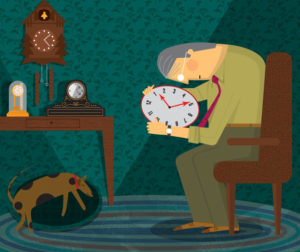
IHR Podcast #29: Watch and wait
In this episode of the Integral Health Resources Podcast, the Cancer Chronicles continue with an update following my visit to MD Anderson Cancer Center in Houston, Texas.
IHR Podcast #28: The power of expectations
In this episode of the Integral Health Resources Podcast, I recount and reflect upon the latest twists and turns of my “journey” since being diagnosed with chronic lymphocytic leukemia. Happiness = Reality – Expectations. That’s what they say, and I think they might be right, so learning to calibrate expectations and hold them as lightly as possible continues to be a challenge.
IHR Podcast #27: Cancer diagnosis
In this episode of the Integral Health Resources Podcast, I update my own health status, which includes a recent diagnosis of chronic lymphocytic leukemia.
IHR Podcast #26: Rise of the Attentionauts
In this episode of the Integral Health Resources Podcast, I say “Hey” for the first time in eleven months, then ramble about reevaluating and revamping the podcast/website in the direction of my current foci: attentionology, meditation, and critical psychology.
Media and resources referenced:
- Tristan Harris and the Center for Humane Technology
- Humane: A New Agenda for Tech (Tristan Harris)
- Your Undivided Attention Podcast
- Cal Newport (computer scientist at Georgetown University)
- Sam Harris (Host of the Making Sense Podcast and creator of the Waking Up meditation course)
- Zeynep Tufekci
- Renée DiResta
- Matthew B. Crawford
- William James (His seminal work, The Principles of Psychology, contains an entire chapter on “Attention”)
- Jenny Odell
IHR Podcast #25: Skin cancer, present state awareness training, collective health decisions, technologies of isolation, and the meaning of anxiety
In this episode of the Integral Health Resources Podcast, I talk about my very recent experience with skin cancer surgery, then I ramble on about a variety of health-related topics that may or may not hang together in a coherent fashion.
Media, resources, and photos referenced:
- The Secret to a Longer Life? Don’t Ask These Dead Longevity Researchers
- Bill Maher calls for collective action to save the environment and fight the scourge of pests and pollution
- How our housing choices make adult friendships more difficult (via David Roberts)
- Joe Edelman’s tweet: “The five most powerful technologies of isolation—smartphones, cars, suburbs, TV, and single family homes—arose just in the last century.”
- Wonderfully described, down-to-earth tips on how to get started with a meditation practice, via Tim Ferriss
- Can you diet help prevent skin cancer? (Dietary recommendation from the Skin Cancer Foundation)
- Johann Hari’s tweet: “#Depression, #anxiety and #addiction are signals – that the individual is in deep pain; that our culture is not meeting their underlying psychological needs. We need to stop insulting and pathologizing these signals, and to start respectfully listening to what they’re telling us.”
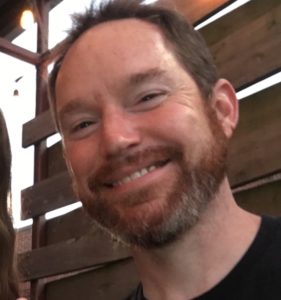
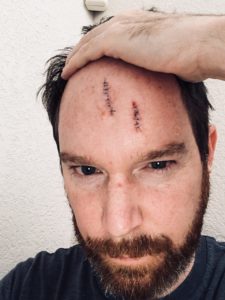
IHR Podcast #24: Delivering your cargo
In this episode of the Integral Health Resources Podcast, I take a journey from New Mexico to North Carolina and back again, then continue rambling through Kornfields and dark webs before rallying to restore my sanity.
Media referenced in this episode:
The Duncan Trussell Family Hour, Episode 290: Jack Kornfield
The Joe Rogan Experience, Episode 1129: Tom Papa
IHR Podcast #23: Summer 2018 reboot
In this episode of the Integral Health Resources Podcast, I resuscitate the podcast after a year-long, self-induced coma. What have I been up to and interested in during this hiatus? There’s only one way to find out.
IHR Podcast #22: Time Well Spent
In this episode of the Integral Health Resources Podcast, I share my thoughts on Tristan Harris, his Time Well Spent movement, and the struggle for ownership of my attention in this age of digital distraction.


